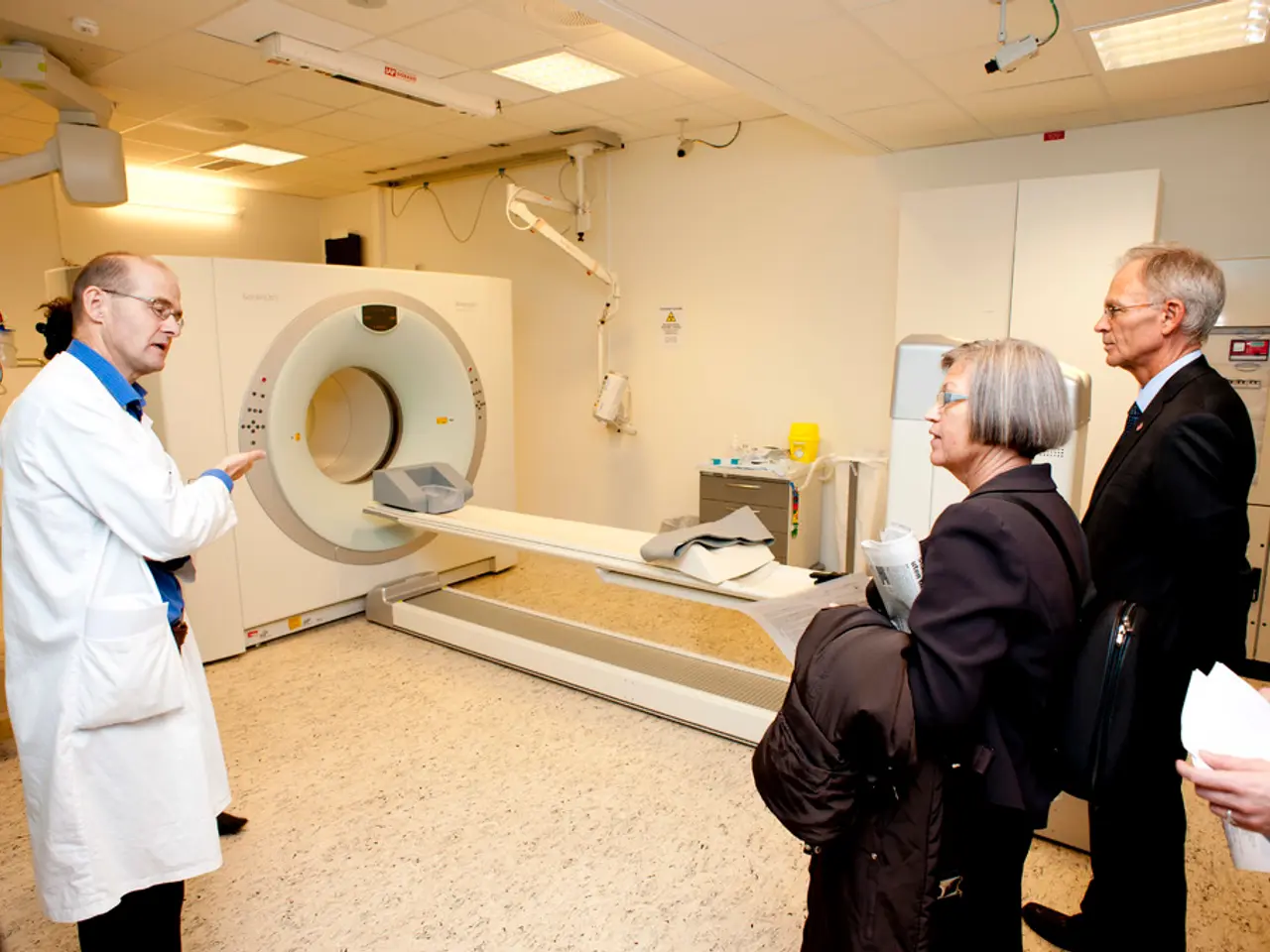Calling for action in cochlear implant care and hospital reform: German Hearing Association urges involvement in DHV Online Dialogue's regional CI self-help initiatives, emphasizing the importance of community members shaping the reform process.
In a significant development, Germany's hospital reform is set to reshape cochlear implant (CI) care and the lives of those who live with the CI. The German Hearing Association (GHA), in collaboration with various stakeholders, is driving this change, aiming to make CI care more patient-centered and efficient.
The reform process has been closely monitored and influenced by CIV NRW and the German Cochlear Implant Society (DCIG). The GHA recently held an online dialogue to discuss the impact of the reform on CI care, with Marion Hoelterhoff, chairwoman of CIV NRW, providing valuable insights.
One of the key decisions made during the reform process was to prevent all ear operations from being placed in one performance group with cochlear implants. This move is expected to lead to a greater emphasis on outpatient care and specialty clinics, aligning with global trends in the cochlear implants market.
According to market data, there has been a shift towards more outpatient and specialty clinic-based care, with specialty clinics and ambulatory centers increasing their share due to cost efficiency and better care protocols. Hospitals handled 58.33% of implant surgeries globally in 2024, but this figure is expected to decrease as the reforms incentivize outpatient care and standardized protocols.
For cochlear implant recipients, future care is likely to become more patient-centered with advanced technologies and expanded telecare options. Recipients can expect faster activation timelines and possibly greater access to outpatient specialty clinics rather than prolonged hospital stays. However, complex cases like revision surgeries or patients with cochlear ossification will likely continue to require care at academic medical centers with specialized resources.
The German hospital reform is expected to further shift CI care towards outpatient specialty settings, supported by technology and cost efficiency incentives, while hospitals remain essential for complex cases. Patients should expect quicker, more flexible care pathways and enhanced telecare options but must check locally for changes in coverage, procedure codes, and care provider networks introduced in Germany's reform.
The DHV, representing all predominantly speech-communicating hearing-impaired people, is at the forefront of advocating for their interests towards politics, society, and the public. The DHV, founded in December 2022, aims to gradually bring about a merger of DCIG and DSB and to be open to the accession of further organizations of hearing-impaired people and individuals.
For definitive guidance, consultation with German healthcare providers or official policy releases is advisable. The DHV will continue to drive the exchange and present a catalog of recommendations, ensuring that the needs of those living with CIs are met in the evolving landscape of healthcare reform.
[1] Global Market Insights, Inc., Cochlear Implants Market Size, Share & Trends Analysis Report By Product, By Application, By End-use, By Regional Outlook And Segment Forecasts, 2022 - 2028. [2] IQWiG, Position paper on the evaluation of medical devices in comparison to alternative treatments: Cochlear implants. [4] Finnish Institute for Health and Welfare, Reimbursement of cochlear implantation in Finland.
- The reform in Germany's hospital system, influenced by organizations like CIV NRW and DCIG, is not only reshaping cochlear implant (CI) care but also integrating health-and-wellness aspects such as fitness-and-exercise and mental-health into the care plan, as part of a more patient-centered approach.
- As the German hospital reform advocates for outpatient specialty clinics, there's a growing emphasis on interdisciplinary care that considers not only physical health but also mental health concerns for those living with cochlear implants, reflecting global trends in health-and-wellness and mental-health approaches.




